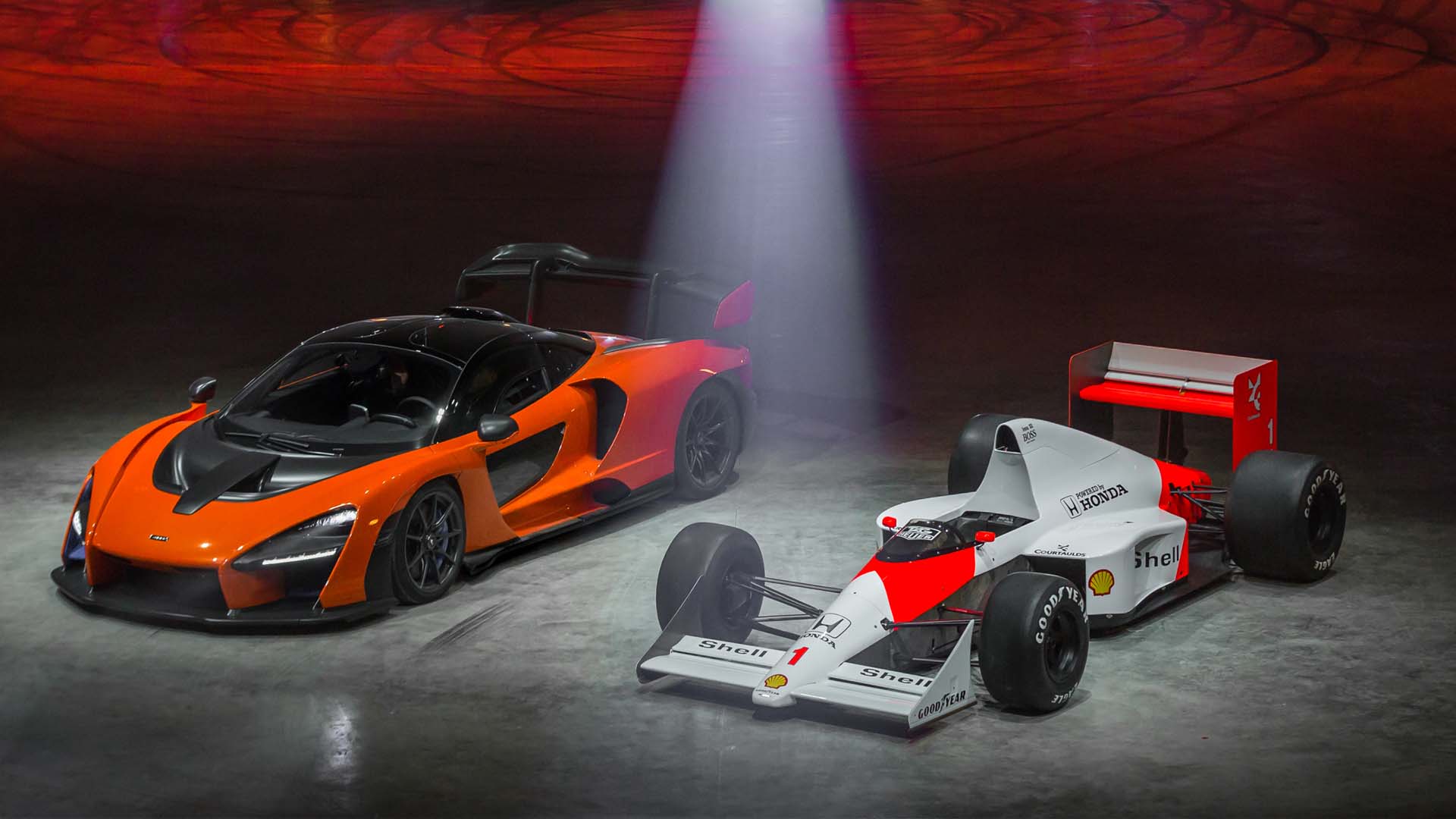

It’s been a dramatic year in Formula One so far, which doesn’t look set to let up on the plot twists as a report emerged today alleging that the iconic McLaren team has been bought by Volkswagen Group Audi. Who only just quit circuit motorsport in favor of mucking about in the desert.
That report, which sent shockwaves through the entire automotive universe on a Monday morning, came from the UK’s Autocar. A source told that publication that “Audi has bought the entire McLaren Group with plans to enter its own team.”
When The Drive reached out to McLaren for comment, however, it said: “McLaren Group is aware of a news media report stating it has been sold to Audi. This is wholly inaccurate and McLaren is seeking to have the story removed.” That same statement now lives on McLaren’s website.
As part of our request, we enquired if there had been discussions with Audi, which McLaren did not deny. “McLaren’s technology strategy has always involved ongoing discussions and collaboration with relevant partners and suppliers,” continued its statement, “including other carmakers, however, there has been no change in the ownership structure of the McLaren Group.”
In the interim, Autocar has since updated its own story with a headline that now reads “McLaren Group denies being bought by Audi.”
Following a similar request for comment from The Drive, Audi said “In the course of our strategic deliberations, we are constantly evaluating various ideas for cooperations.”
So hypothetically, why would either brand want to work together? It’s unclear how this went down at Autocar, but McLaren has had its share of upheavals lately. McLaren Automotive CEO Mike Flewitt, who had overseen the company becoming profitable, suddenly stepped down, after a decade, at the end of last month. Reports began appearing last week in German-language news that both BMW and Audi had made attempts to purchase McLaren’s automotive arm, according to
Reuters.
McLaren has already somewhat piecemealed itself as part of a financial rescue package that had to be found before the 2020 Formula One season. It sold off its Applied Technologies section in 2020 and then earlier this year sold its own headquarters, the McLaren Technology Centre, to lease it back from a private equity firm. It will be compelled to refinance loans from the Bahraini national bank in 2022, so despite having reached relative financial security there are significant challenges in the near future and has continued to sell stakes to its racing division, including to U.S. investors and Saudi Arabia.
As for gaming this out on Audi’s end: Audi has already stopped developing internal combustion engines and is set to sell no more petrol or diesel cars from 2026 onwards. That would be almost the same date as F1’s new power unit regulations come into force, which are set to continue to be some kind of petrol-hybrid system, simplified to exclude MGU-H. Given that, it’d be reasonable to assume an Audi entry would need to source its power unit externally, as McLaren does (currently from Audi’s rival German marque Mercedes) and that an Audi move into F1 doesn’t as much foreshadow as dictate a Porsche commitment, at least as a power unit supplier. Which, to be fair, Porsche have been heavily hinting at for awhile now.
Audi has been part of talks to agree F1’s 2025 regulations, as what former Formula E team boss Allan McNish told me earlier this year was not only specific to looking at the future of F1 but “also about the guidance of where motorsport needs to go to stay relevant. I think there’s two stages to this: There’s one obviously program specific, but there’s also one where is motorsport going to be in 2030, 2035, 2040? Because the car industry is clear where it’s going.”
Any new entrant to F1 has to pay a $200 million anti-dilution fee to existing teams, in order to compensate for prize money being split the eleventh way. So buying an existing team that’s got immediate cashflow problems (given 2022’s deadline for McLaren to refinance will start getting real in a month and a half) isn’t a ridiculous indulgence.
On the other hand, where this would have left McLaren as a brand—and its current agreement to be Mercedes-powered in F1 until at least 2024—is a whole set of other questions.
The Drive will keep an eye on this unusual situation and update this story as it develops.
Do you know anything about this Audi/McLaren situation? What happened with Autocar’s story? Hit us up discreetly at tips@thedrive.com.